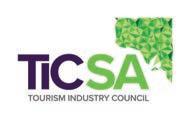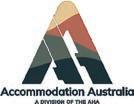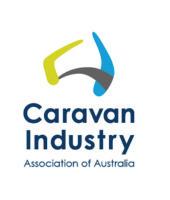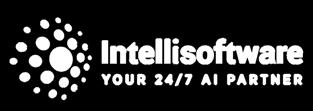




Welcome to APAC Revenue Management Summit – “RISE UP” and issue 12 of RM Magazine. RM Magazine features insightful content from our valued partners, who share rich and practical insights to enhance your business performance.
Since their inception in 2016, all Summits have delivered tangible revenue outcomes for many attendees and partners post-event, with a strong focus on education to drive profitable results.
We are delighted to have the continued support of our Major Industry Partner, VTIC, along with Accommodation Australia, Caravan Industry Association Australia, Tourism Industry Council South Australia, and ASTRA (Australia and New Zealand Short Term Rental Accommodation Association). This event would not be possible without all our exceptional partners, especially our Platinum Partners, Expedia Group and Intellisoftware (Hotel RevBoost), and our Diamond Partners, SiteMinder and Duetto.
This year, our Summit is themed “RISE UP,” which signifies the resilience and adaptability of the travel industry in the face of challenges. We are thrilled to have gathered revenue management experts, industry leaders, and international professionals to share their experiences and insights.
In addition to our theme, we have several exciting industry initiatives to share. We are thrilled to announce our partnership with Allara Learning, who will enable us to deliver Accredited and Nationally Recognised Training in revenue management. This is a significant milestone for the sector and the profession, as we now have an accredited competency-based VET course recognised as the minimum gold standard of education for the profession. This allows employers to meet their training obligations with accredited training listed on the national register training.gov.au and then build upon this training with their own internal programs and practices. It fills a huge sector-wide gap, making this product essential for Industry.
I call for support from industry leaders to back such initiatives for the sector and invest in their people and their businesses. Accredited programs require the formation of an Industry Skills Council and industry consultation to ensure the course remains current and relevant. The submission process to receive and maintain accreditation is rigorous and extensive to ensure compliance with standards set out by the regulator ASQA (Australian Skills Quality Authority).
I am also delighted to advise our division, ARMA Events, which is dedicated to fostering collaboration, discussion, professional development, and networking, have added a Commercial Strategy Forum to our annual list of programs. ARMA also currently delivers for industry the APAC Revenue Management Summit, The Student Revenue Management Challenge, and Celebrate YOU – Tourism Employee Awards, which offers a new take on legacy award programs by encouraging peer-to-peer recognition, supporting growing industry networks, and focusing on the people behind the brand, all of whom play a critical role in business performance.

ARMA also announced this year a strategic partnership with Intellisoftware as our AI Education Partner, allowing us access to leading experts and resources so we can continue to stay at the forefront of the rapid integration of Artificial Intelligence into business operations.
The Australian Revenue Management Association (ARMA) focuses on upskilling tourism operators in revenue and yield management. ARMA’s purpose is to provide education, resources, and networking opportunities to help industry professionals develop the skills and knowledge needed to maximise revenue and profit potential. By promoting best practices and providing ongoing training and support, ARMA is raising the standard of revenue management across the industry and driving improved outcomes for both the people in the profession and business.
Through its core focus on upskilling, ARMA empowers accommodation operators to make datadriven decisions that drive growth and success.
I’d like to take this opportunity to thank our ever-expanding ARMA community of trained professionals, our members, and our industry and corporate partners, and congratulate those that have achieved Affiliate, Associate, or Fellow status under the ARMA Professional Membership Framework.
As always, thank you for your support.
Melissa Kalan Chief Executive Officer Australian Revenue Management Association – ARMA
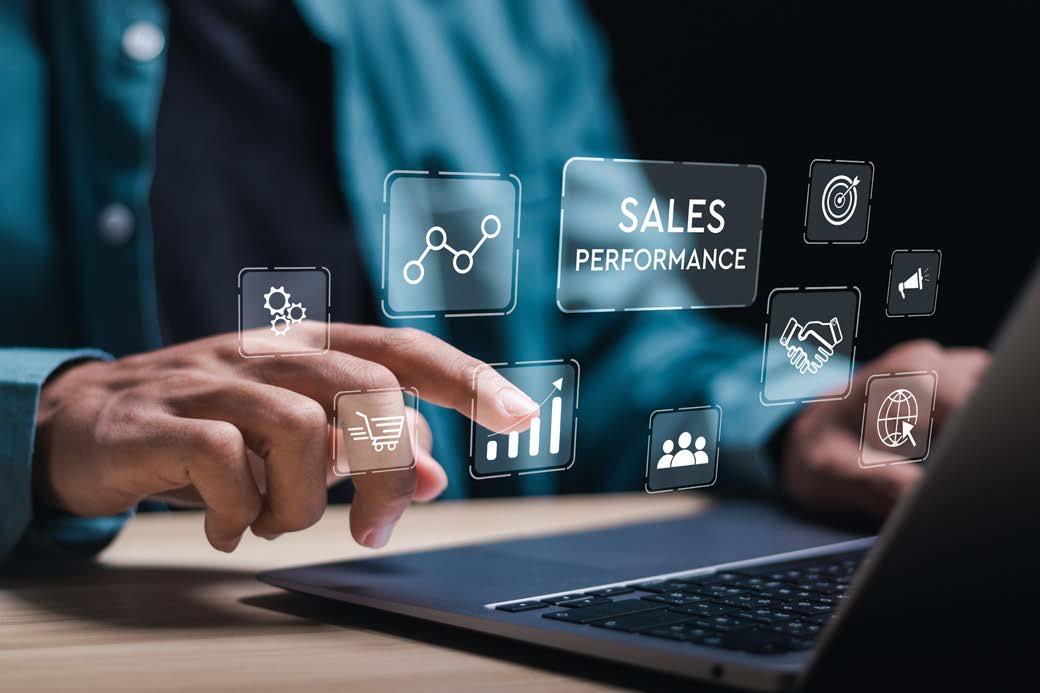
Integrating Artificial Intelligence (AI), Machine Learning (ML), and its associated technologies into the hotel and hospitality sector is a gamechanger. These technologies are not only streamlining operations but also significantly enhancing customer experience (Cx). Other areas of impact include revenue management with revenue optimisation tools like Intellisoftware’s Hotel RevBoost, an Australiandeveloped AI-driven RMS platform currently making substantial inroads into the RMS space.
Personalisation and Guest Experience:
AI and ML are at the forefront of personalising the guest experience in the hospitality industry.
For example, by leveraging guest data, AI systems can deliver customised recommendations and even suggest services that a hotel guest might like, leading to a more personalised stay. This elevates the guest experience but also encourages increased spending, thereby serving as another means of boosting hotel revenue.
Operational Efficiency:
In terms of operational efficiencies, AI and ML have also come into their own by being able to automate routine tasks, such as reservations and check-ins, which can in turn result in cost savings and reduced human error.

Predictive Analytics and Revenue Management:
More complex applications where AI can be applied include dynamic pricing where a sophisticated AI-driven platform like Hotel RevBoost can now automatically adjust room rates in real-time, based on a range of inputs such as historical booking data, travel trends, occupancy, room demand, and of course, competitive activity. Overlay this with predictive analytics and now, by leveraging the enormous power of Artificial Intelligence and Machine Learning, AI algorithms can accurately predict future demand, allowing hotels to adjust their pricing and availability accordingly. This foresight enables hotels to stay ahead of market trends and optimise their revenue management strategies, ensuring that amongst other things, they sell their room inventory at the most profitable rates.
Challenges and Future Considerations:
Despite its clear advantages, the adoption of AI and ML comes with certain challenges, including widespread concerns about data privacy, the need for substantial investment, and the necessity for continuous training and adaptation. Nonetheless, the potential for increased efficiencies, improved
guest satisfaction, and higher revenue is driving the hospitality industry towards embracing these technologies.
Conclusion:
AI and ML are transforming the hotel, hospitality, and tourism sectors and as these ‘frontier technologies’ continue to evolve, their influence on the industry is expected to increase, heralding a new era of innovation and profitability in hospitality management.
CEO of ARMA Melissa Kalan stated “As we see the application of Artificial Intelligence becoming ubiquitous across many industries – it is important to note that the hotel and hospitality sector is no exception. We believe that this collaboration underlines the immense momentum being created by the rapid adoption of this technology, as well as the potential for AI to make a positive business impact on our remit as a key representative body.”

The following is an edited excerpt from SiteMinder’s newly-launched thought leadership blog series, ‘Revenue Management: A Deeper Conversation’.
With every passing year, revenue management is playing a more central role at hotels as they navigate a landscape now locked in a permanent state of change. And as the discipline has transformed, there appears to be a widening gap between the heightened demands on revenue managers and the shrunken pool of talent within the industry.
Derek Martin, CEO and Founder of data analytics company TrevPAR World Group, clarifies revenue management’s centrality to a hotel’s commercial success today.
“Revenue management has actually become the lifeline and the heartbeat of a hotel,” says Martin. “When you look at revenue management holistically, it’s no longer just about the rooms. It is
about the entire business; its costs, performance and profitability. It’s become much more of a commercial function than just a revenue management function.”
Despite the abundant need and desire for revenue management expertise, the hotel industry currently faces several challenges when it comes to building the talent required for today’s practice.
“I am rather concerned about the standard of experience currently on display in the industry,” says Tamie Matthews, CEO and Founder of RevenYou, a Melbourne-based consultancy for independent hotels. She points to the scarcity in holistic experience among revenue managers at a time when the practice has taken an equally holistic approach.
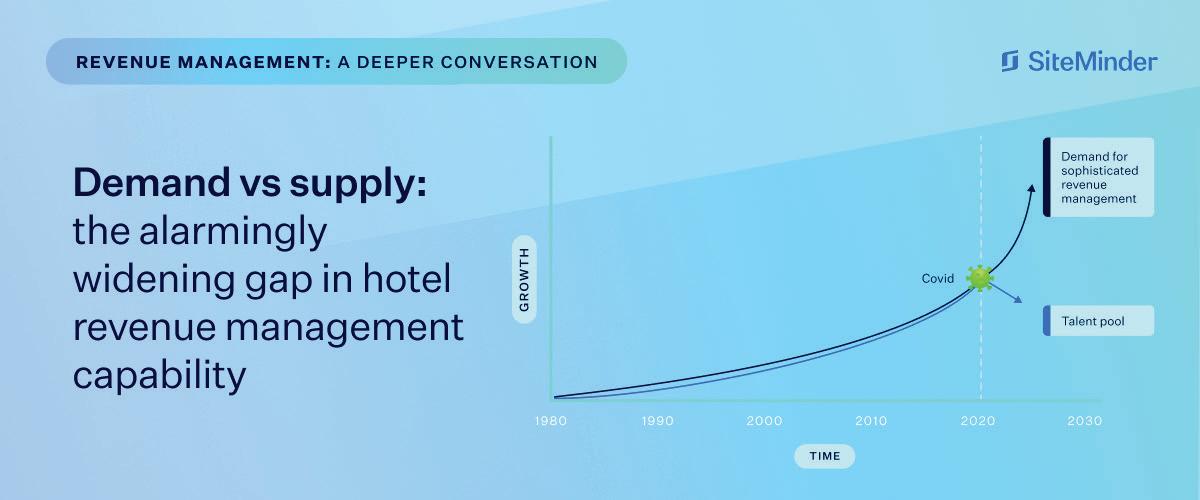

“While we now have people who can move a price up or down, use a revenue management system and analyse data, they lack the experience in driving production, creating a profitable distribution strategy and operating the multitude of systems we use daily to create revenue,” Matthews explains.
Bridging the gap towards a true revenue culture
For Matthews, a revenue manager’s openness and inquisitive mindset are necessary to raise the level of revenue experience in the industry.
“To ensure revenue management continues to grow and evolve, revenue managers need to expand their knowledge base. They must adopt a growth mindset and a desire to learn,” she explains.
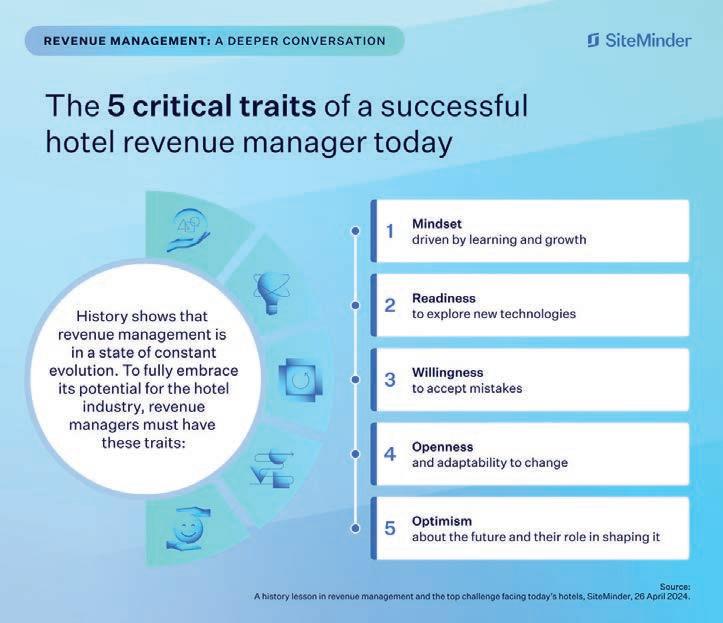
In the end, Martin believes that fostering a culture that rallies behind revenue practitioners and their ideas is key to further advancing the current practice of revenue management.
“A true revenue culture is achieved when you have buy-in from the top to the bottom, with everyone
sharing a common goal to achieve targets and meet stakeholder expectations. So, if we truly want to make revenue management the forefront of our industry, we need to give our revenue managers an opportunity. Let them speak, listen to them and buy into their ideas.”
For the full article head to SiteMinder’s blog
Hotels in Australia are reaping the rewards of turning to a more dynamic way of pricing hotel rooms, with Duetto.
The Remington Orange saw an immediate ADR uptick after implementing the revenue management system (RMS) in April 2023.
“May was the first full month with Duetto and we saw fantastic results. ADR went from $217.08 to $238.73, and I would credit a huge portion of that to how much more aggressive we were able to be with Duetto,” said Hotel Manager, Alex Tran.
Tran brought on Duetto to automate the hotel’s pricing, enabling it to react to changes in occupancy and demand. He adopted Duetto’s Open Pricing methodology, which enables hotels to yield all segments, room types, and distribution channels independently.
“Open Pricing has allowed me to maximize revenue at the smallest level. All the little revenue boosts do add up quite quickly,” he said.
Crystalbrook Collection is a portfolio of seven distinctive hotels and resorts in Cairns, Brisbane, Byron Bay, Newcastle, and Sydney.
The sustainably led, independent hotel group has worked with Duetto since 2017. Darryl Elliott, Director of Revenue Management, joined the company in 2021 and was immediately impressed with Duetto’s Open Pricing.
“Open Pricing allows you to keep all distribution channels open, without sacrificing rate or length of stay, by setting pricing rules by rate code, room type, and segment,” he said. “The system just makes it happen.”
Crystalbrook Collection is using Open Pricing to optimize rates during high-demand periods and drive buy-up into higher room categories on low-demand periods by decreasing discounts.
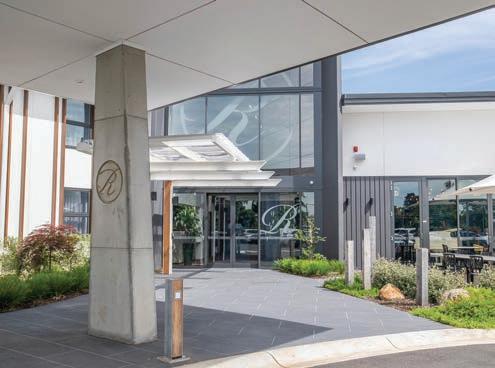
“We have seen great results across all segments; however, the standout has been our suites. We changed our strategy to look at the demand forecast by segment and room type to maximize our revenue potential,” Elliott explained.
In 2023, Duetto launched dynamic optimization, taking Open Pricing to a new level. This new feature, part of Advance, continually flexes prices in line with changing market demand, delivering true real-time rate optimization.
Advance also combines real-time market data, including event data from Predict HQ, to ensure immediate response to market-driving changes to maximize profitability.
Looking for a revenue management system (RMS) but unsure where to start? Download Duetto’s Ultimate RMS Checklist and discover 10 factors to consider when selecting an RMS for your hotel.

















































Melissa Kalan sat down with this years’ featured Summit Revenue Leaders and asked them these five questions
Head of Revenue and Distribution, The Ascott Limited ARMA Advisory Board Member
ABOUT MADHAVI
Madhavi Nagarajan is the Head of Revenue & Distribution at The Ascott Limited in Australia, where she leads revenue management strategies across The Ascott Australia properties. Her role, beginning in May 2023, followed her successful tenure as Director of Revenue Performance, during which she adeptly transitioned from overseeing Quest Apartment Hotels’ to encompassing broader responsibilities within The Ascott portfolio.
With over a decade of experience in the hospitality sector, Madhavi has held several key positions, including Operations Manager and Group Revenue Manager at Punthill Apartment Hotels, and various strategic roles at Quest Apartment Hotels. Her extensive background has equipped her with a profound understanding of revenue optimisation and strategic planning, making her a vital leader in adapting to evolving market trends and enhancing profitability in the competitive accommodation industry.
1What do you love about RM?
Without being technical, I love how versatile revenue management is, the systems we get to work with and the influence we have over the performance of our hotel(s). I also love the aspect of instilling a revenue culture across different teams and bridging knowledge gaps. Bringing hoteliers on the journey as I call it.
2How did you get into the career?
Purely by chance. Started off in a res role some decades ago and was intrigued by pricing strategies, the rise of OTAs and the shift from static to dynamic pricing models in the accommodation industry.
3Where do you see the future of RM heading?
RM has really evolved since when I first started my career in the field. From excel ninjas who sat in a corner, most of us are introverts, in fact still are. RM right now is more about communication, collaboration, and confidence! We are outcome driven

team members who play a part in getting operations, sales, and property teams together for alignment and a focus on revenue.
4What do you dislike about RM i.e. what could be improved that drives better outcomes for the profession?
Nothing to dislike, but sourcing talent has been a great challenge in our field. We still hear revenue management being associated with Finance which indicates a massive knowledge gap. I wish more people would have an opportunity to learn what revenue management is and explore some of the courses available so we can continue to see a rise in talent.
5An interesting fact about you?
I am a big believer in sourcing talent from within. I always try and recruit from property and see if there is a pathway of progression from front office or guest service to RM. I recently recruited two roles in my team without a seek ad.
Monique Jeffrey
Revenue Manager – Choice Hotels Asia-Pac
Monique Jeffrey is currently a Revenue Manager at Choice Hotels for the APAC Region.
Monique grew up in Hobart, Tasmania and moved to Melbourne 20 years ago to pursue a career in the Hotel Industry.
Working across all hotel departments during her career, Monique has specialised in Revenue and Yield Management for the past 14 years –managing properties across all parts of Australia and New Zealand – from remote outback and island destinations to city and suburban properties.
Specialising in the implementation of property management and revenue management systems, Monique recently project managed the rollout of Opera Cloud in the APAC Region for Choice Hotels.
1What do you love about RM?
The results and the science behind them. It is also wonderful to see our franchisees succeeding in their business because of RM. And above all, in my current role I work with an incredible team of talented revenue managers and have franchisees that really value revenue management.
2How did you get into the career?
I started in Front Office and when I was a Duty Manager (many many years ago!!) I had a front office manager with a background in revenue management. He started showing me a few things and I realised it was a great path for me, the rest is history.
3Where do you see the future of RM heading?
I think AI will play a larger role as time goes on and revenue management systems will evolve further. But it will always need to work in conjunction with human influence to get the benefit of a robot, I don’t see that changing so much. I see revenue management

being even more specialised in the future too as we will need to evolve and adapt in line with AI.
4What do you dislike about RM i.e. what could be improved that drives better outcomes for the profession?
I feel the industry places too much emphasis on the accuracy of revenue forecasting. Forecasting is important for sure, and it can influence decisions but if the pandemic has taught us anything, it’s that we need to be prepared for things that happen out of our control. You need strategies for all circumstances. Spending hours and hours forecasting and refining forecasts to be accurate can be a waste of resources better used for revenue generating activity.
5An interesting fact about you?
I broke by neck sneezing 12 years ago…And then did it again 8 years ago, twice more. Neck is now fused so it can’t happen anymore thankfully! Crazy times!!
“A great analyst does not cherry-pick data to shape the narrative; rather, they explore all data, good and bad, allowing it to drive the story.”
Melissa Kalan
Director, Revenue Management Southeast Asia, and Pacific for Sofitel, MGallery and Emblems brands, Accor ARMA Advisory Board President
ABOUT TODD
Todd Simms, an expert in hotel revenue management, is known for a collaborative approach to leveraging technology and data analytics that drive profitability and enhance guest experiences. With over 20 years of experience in the hospitality industry, Todd has held various leadership roles, and consistently demonstrates a knack for strategic thinking and operational excellence. Todd began his career in operational roles in hotels, where his keen analytical skills and forward-thinking mindset quickly set him apart. Over the years, he has worked with some of the world’s leading hotels and currently serves as Director, Revenue Management Southeast Asia, and Pacific for Sofitel, MGallery and Emblems brands at Accor.

Todd holds a Diploma in hospitality and an MBA from University of Canterbury and is the current ARMA Advisory Board President. Todd is also co-creator of Celebrate YOU – Tourism Employee Awards. In his spare time, he enjoys travelling and good wine.
1What do you love about RM?
I love the diversity it gives and the ability/need to go from the macro to very micro. I love the tangibility of the discipline being able to see results from your efforts (positive or negative!)
2How did you get into the career?
I am one of the old ones that was a Reservation Manager during the period of the emergence of revenue management through the Res/Rev position – overtime as the position evolved into a standalone one, I grew my skills and experience with it.
3Where do you see the future of RM heading?
The future of hotel revenue management will be driven by a more intelligent, data-driven, and customer-centric approach. Hotels that effectively leverage technology and data to personalise experiences, optimise pricing, and diversify revenue
streams will be well-positioned to thrive in an increasingly competitive and dynamic market.
4What do you dislike about RM i.e. what could be improved that drives better outcomes for the profession?
There is still a way to go in terms of parity with other commercial positions particularly at hotel level, we all need to continue to push the visibility and value the discipline brings. Leaders have the responsibility to continue to spotlight the role and revenue professionals also have the responsibility to continue to upskill and learn to promote themselves better.
5An interesting fact about you?
My original career goal was to be a chef, until I worked out Chefs have to work when everyone else is out enjoying their food!
“There is nothing better than seeing people grow whilst driving economic success through the art and science of revenue management”
Todd Simms






Katrina Wallace
National Revenue Manager, NRMA Parks and Resorts
ARMA Advisory Board Member
Katrina Wallace serves as the National Revenue Manager at NRMA Parks and Resorts, a position she has held since April 2015. Based in Coolangatta, she has spearheaded the execution of revenue management strategies across the organisation, playing a pivotal role in the coordination of daily, weekly, and monthly statistics and trends that shape the company’s pricing, distribution, and occupancy strategies.
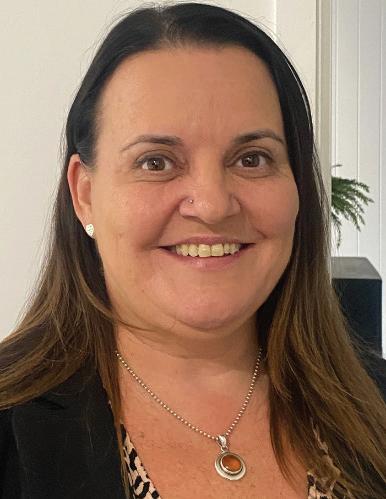
Prior to her current role, Katrina was the Regional Revenue Manager at Mantra Group from June 2005 to June 2013, where she managed revenue operations for 23 properties. Her responsibilities included overseeing room rates and inventory management to achieve target RevPAR, conducting detailed market segment forecasts, and implementing pricing strategies. Her earlier role as Yield Manager at Constellation Hotel Group further honed her skills in revenue management, where she managed promotional opportunities, monitored competitive positioning, and supervised reservations personnel, significantly boosting RevPAR and occupancy rates through strategic oversight.
1What do you love about RM?
I love the challenge of optimising revenue in a constantly changing environment. It’s incredibly satisfying to analyse data, predict trends, develop innovative strategies to make decisions that directly impact the success of the business. Each day presents new challenges and opportunities, keeping the work exciting and dynamic!
2How did you get into the career?
My journey into revenue management began over 20-years ago as a reservations agent, when revenue management was a relatively new concept in hotels. I quickly realised the importance of pricing and inventory management and how they influenced revenue and profit. I pursued further education and training in revenue management, including ARMA training, which developed my career. The blend of analytical skills and industry knowledge made it a perfect fit for me.
3Where do you see the future of RM heading?
I see the future of revenue management is headed towards greater reliance on AI and machine learning. These technologies will enable more accurate demand forecasting and real-time pricing adjustments, leading
to more efficient and effective revenue strategies. We’ll see a deeper integration with big data analytics and personalised pricing strategies. As we gather more data about customer preferences and behaviour, we’ll be able to tailor pricing and promotions to individual customers, maximising both revenue and guest satisfaction.
4What do you dislike about RM i.e. what could be improved that drives better outcomes for the profession?
One challenge in revenue management is the rapid pace of change and the pressure to constantly adapt to new technologies and market conditions. This can sometimes lead to a reactive rather than proactive approach. To improve, I think there should be more emphasis on continuous professional development and training. Additionally, better integration of systems across departments would enhance data sharing and collaboration, leading to more informed and cohesive revenue strategies.
5An interesting fact about you?
I’m passionate about live music and often attend concerts to unwind. This helps me recharge and brings a sense of balance to my life.
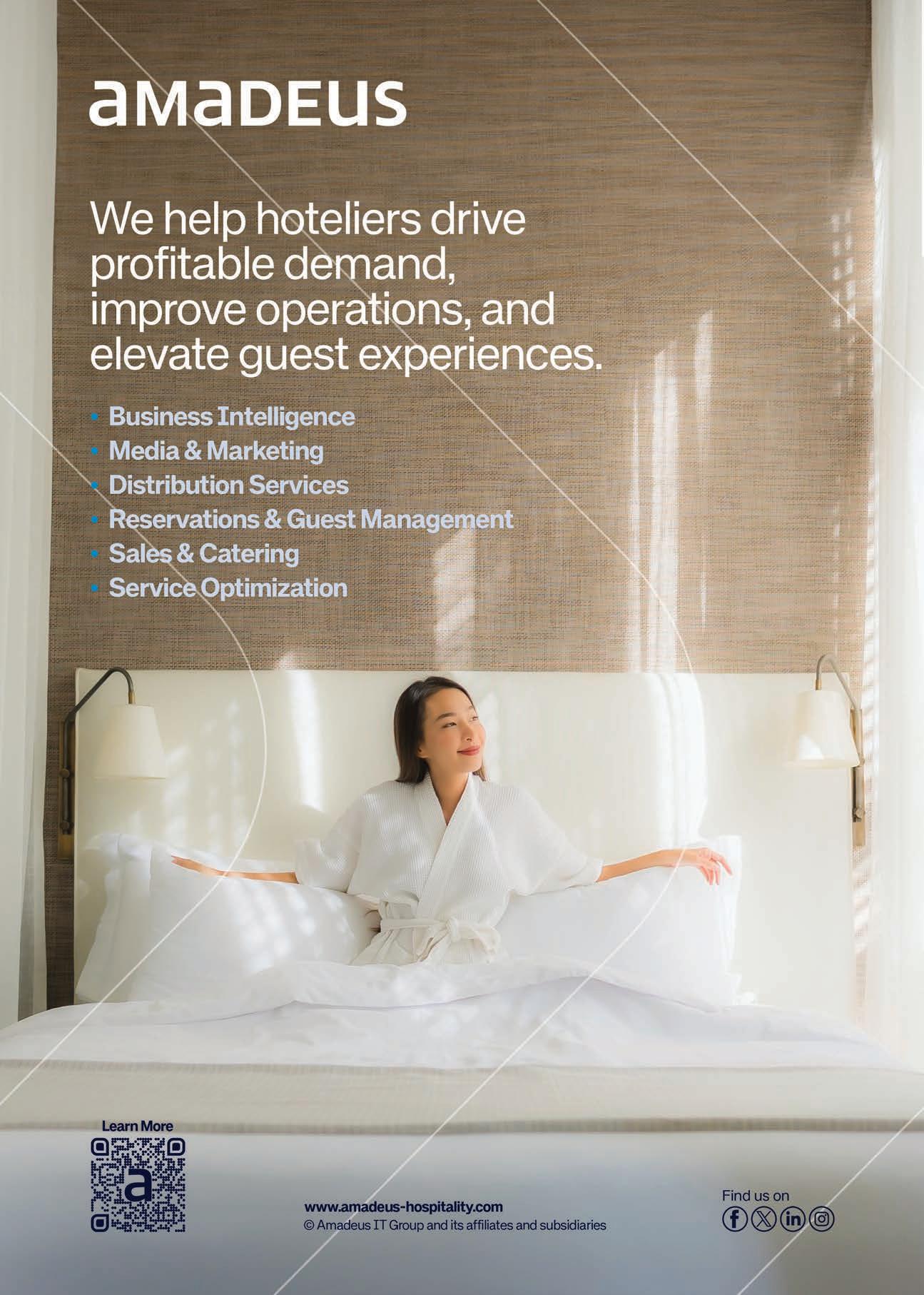
Built upon the foundation of Booking.com’s existing machine learning model, the AI Trip Planner is also partially powered by large language model (LLM) technology from OpenAI’s ChatGPT API .
Travellers can ask the AI Trip Planner general travel-related questions, as well as more specific queries to support any stage of their trip planning, including scoping out potential destinations and accommodation options, providing travel inspiration based on the individual’s needs and requirements, as well as creating itineraries for a particular city, country or region.

In a recent study conducted by Booking.com*, nearly a third of Millennials (31%) and Gen Z (30%) consumers said they are likely to use AI when planning travel in 2024, compared to Gen X (19%) and just 6% of all Boomers.
Travellers can easily chat with the AI Trip Planner to ask questions and refine their search in real time, with new options surfaced in a matter of seconds. From inspiration on romantic beach destination options in Tropical North Queensland to zeroing in on a curated list of holiday homes for a family of four in Byron Bay, the AI Trip Planner makes recommendations in a quick, effortless and conversational way.
The AI Trip Planner takes the trip planning process one step further by providing travellers with a visual list of destinations and properties, including Booking. com’s pricing, with links to view more details. Travellers can go back and forth between their chat with the AI Trip Planner and the Booking.com app
as they consider options for their trip. With just a tap on what type of booking they require, from accommodation to attractions they can complete the reservation in-app.
“Our primary aim at Booking.com has always been to leverage technology to make travel easier.” said Todd Lacey, Regional Manager of Booking.com in Oceania. “The recent developments with generative AI are accelerating the work we’ve been doing for years with machine learning to enhance and improve every aspect of the customer experience on our platform, whether it’s optimising the right order to display hotel or holiday home content to surfacing the most relevant reviews or attractions
Australian travellers must be signed in to their Booking.com account in the app and have their language settings set to English to access the new travel planning tool.



In the age of big data, the volume of information available for hoteliers to analyse and inform key business decisions can be overwhelming. The simple fact is there are far too many data points to process manually, and too many decisions to be made for any human to undertake accurately, without the assistance of automated solutions.

Which data supports better pricing decisions?
The information that supports hotel pricing decisions commonly includes stay history, inventory history, future reservations, future inventory, market data and future rate information. However, whilst it was once assumed more data leads to more informed decisionmaking, the focus is now on ensuring the right data is collected in the first place.
Hotel managers must recognise that not all data is created equal; only relevant information should guide business decisions. In such circumstances, it is important to treat data fairly, but not equally. Advanced revenue management technologies can help hoteliers stay ahead of competition by utilising the right data at the right time that enables informed pricing and operational decision making.
need for automation
Any hotelier working to implement an effective revenue strategy without the support of an analytical revenue management system (RMS) will find themselves overwhelmed by the volume and complexity of available data. Forward-looking predictive analytics, embedded in today’s advanced RMS’s consolidate data and produce more accurate data analysis. These systems help hoteliers uncover emerging trends and identify opportunities to capture more revenue. They
also support rational decisionmaking, increased efficiency, and deliver revenue management teams more time to drive strategy and growth.
Make better business decisions with advanced revenue management technology
IDeaS RMS supports Australian hoteliers through its ability to adapt to realworld business complexities and effectively deliver demand-based pricing decisions. The development teams at IDeaS created a system that could not only adapt to the intricacies of the hospitality business but also deliver statistically proven results. The system delivers helps to eliminate user error and creates a framework where the RMS can dynamically respond to fast-changing conditions.
Calibrating the system to the unique nuances of the hospitality sector, G3 RMS incorporates comprehensive datasets, considering factors like special events, market data, days to arrival, and more. Unlike many solutions with simplified forecasting approaches, IDeaS utilises more than 100 models tailored to different hotel business operating needs, ensuring a diversified, scientific approach to addressing forecasting uncertainty.
Through leveraging advanced technology platforms like IDeaS RMS, hotels can successfully calculate optimal pricing and inventory decisions. These systems assist hoteliers to move beyond their normal revenue management processes into harnessing their data and forecasting capabilities to explore, predict and optimise property or group revenue performance.
For more information, please visit: www.ideas.com

. . . if your guests could reserve their room and then make bookings for any amenities at your property, all in a single transaction, single payment, single itinerary?
Now imagine how empowered your staff could be with a single guest profile for every guest, with their preferences in one view, one place.
Then imagine how this elevates your guests experience with the power to elevate your revenue per guest.
Imagine no more, this is achievable now. No complex systems integrations, no complex data normalising, one system, one view, one guest profile.
With 100% focus on Hospitality, Agilysys is committed to helping hoteliers deliver a higher return on experience with systems that are designed to work together, empower staff, and delight guests.

Find out more, scan the QR code.

by Melissa Kalan, Australian Revenue Management Association

ARMA – Australian Revenue Management Association has always advocated that all employees are revenue management ambassadors for their organisations. In this article, I explore how everyone contributes to the revenue success of a business in both direct and non-direct ways.
Surprisingly, the value of operational excellence on commercial performance is often not talked about enough. Hospitality is a competitive industry and maximising revenue isn’t solely the responsibility of a select few, but rather, it’s a collective effort that involves every member of the team, from frontline staff to back-office personnel.
Hospitality belongs to a category of industries known as perishable asset industries, where the product, whether it be a hotel room, a restaurant table, or a flight seat loses its value if it goes unsold. Unlike tangible goods that can be stored and sold at a later date, the inventory in these industries must be sold within a specific timeframe, or the opportunity for revenue is lost forever. This inherent characteristic of perishable assets underscores the importance of
effective revenue management strategies, where every opportunity to optimise revenue must be leveraged.
The impact of operational performance on revenue cannot be overlooked.
Operational performance underpins value perception and directly impacts guest conversions and revenue outcomes.
Frontline staff possess the unique ability to directly influence guest spend through personalised interactions and service offerings. Their proficiency at upselling room upgrades, promoting amenities, and suggesting additional services directly impacts the average spend per guest, thereby driving revenue growth. Further, their commitment to delivering exceptional service fosters guest loyalty and positive word-of-mouth referrals enhancing revenue opportunities.
Beyond frontline, employees across various departments indirectly impact revenue outcomes through their contributions to operational excellence. Housekeeping staff ensure the cleanliness and presentation of hotel rooms, enhancing guest
satisfaction and perceived value. Maintenance and facilities management teams maintain amenities and facilities, minimising downtime, and maximising guest enjoyment. Administrative and support staff optimise internal processes, reducing costs and improving operational efficiency.
However, when operational performance falls short of expectations, it can have profound implications for revenue generation. A decline in service standards can lead to negative guest experiences, diminishing the perceived value for money. Guests may be less inclined to return or recommend the property to others, resulting in lost revenue opportunities and decreased conversion rates. Thus, the importance of operational excellence in shaping guest perceptions and driving revenue cannot be overstated.
Harnessing the collective potential of every employee as revenue management ambassadors, organisations can foster a culture of collaboration, empowerment, and accountability. Training programs can equip employees with the skills and knowledge necessary to identify revenue opportunities and deliver exceptional service. Incentive programs can incentivise and reward employees for their contributions to revenue generation, fostering a sense of ownership and accountability.
Moreover, organisations must prioritise operational excellence to ensure that guest experiences consistently meet or exceed expectations, and especially when room rates rise. More recently I have observed an increasing number of online review scores citing “lacks value for money.”
By investing in staff training, implementing robust quality control measures, and fostering a culture of continuous improvement, accommodation operators can enhance guest satisfaction and perceived value, thereby maximising revenue potential.
By recognising the interconnectedness of operational performance and revenue generation and empowering employees to excel in their roles, operators can reach their full revenue potential and achieve sustainable growth.
At ARMA Australian Revenue Management Association, we remain steadfast in our commitment to recognising the pivotal role played by every employee in driving revenue success.
www.revenuemanagementassociation.com
The Australian short-term rental market is experiencing significant growth, fueled by a 25% increase in Airbnb listings over the past year. This places Australia among the top 10 countries globally. We use data collected from our global database of hotel and short-term rentals. PriceLabs is a revenue management solution for the short-term rental and hospitality industry. With dynamic pricing, automation rules, and customisations, we manage pricing and minimum night restrictions for any portfolio size. We price over 350K listings globally across 135+ countries. Choose pricelabs.co to increase revenue and streamline pricing and revenue management.
Despite the surge in listings, key performance indicators have remained relatively stable. Occupancy rates have seen a modest 1% increase, reaching around 60%, while the average daily rate (ADR) has experienced a slight decrease of 2%, settling at AU$342. However, revenue per available room (RevPAR) has remained steady at around AU$204.
Looking ahead to 2024, trends indicate continued stability in occupancy rates at around 60%, with ADR expected to rise to AU$476. However, due to stable RevPAR, this may not translate to increased revenue.
As of March 2024, New South Wales leads in listings with approximately 44,000 properties, yet it exhibits the lowest occupancy at 54%. Western Australia boasts the highest occupancy at around 70%. Despite its lower occupancy, New South Wales commands the highest ADR at approximately AU$400 per night, with the Northern Territory having the lowest at AU$200 per night. This contributes to New South Wales having the highest RevPAR, while the Northern Territory experiences seasonal spikes in RevPAR, particularly from May to August.
dominance of Individual and
Individual hosts with single listings dominate the market at 40%, followed by small hosts with 2-10 listings at 27%.
Dynamic pricing significantly impacts listing performance. Over 43% of listings do not utilise it. Those employing high or fully dynamic pricing achieve an impressive 72% occupancy rate compared to 54% for listings with static pricing. While dynamic pricing could’ve been a major factor, other physical factors could have also contributed to the occupancy rate trends. Listings with dynamic pricing, especially at higher levels, tend to achieve higher ADR and RevPAR, highlighting the importance of dynamic pricing strategies to maximise revenue.
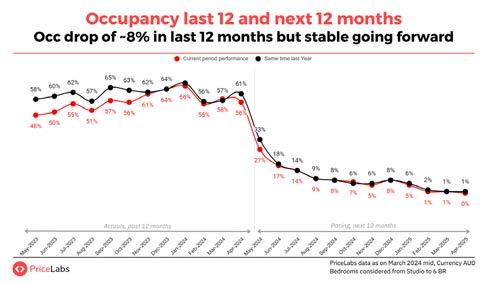
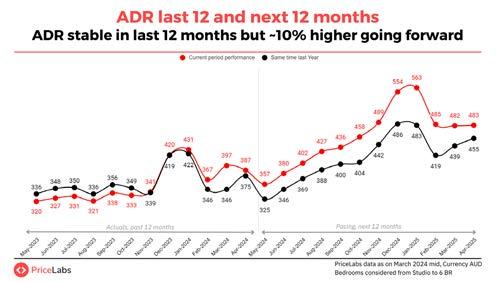
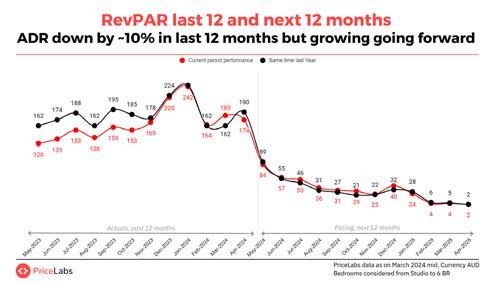

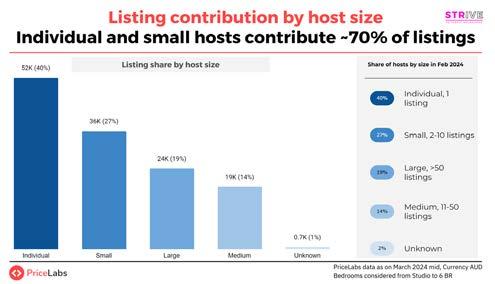
Thriving
Australia’s short-term rental market is thriving, with consistent listing growth and stable performance metrics. Regional variations in occupancy, ADR, and RevPAR underscore the importance of tailored strategies. Embracing dynamic pricing can significantly enhance listing performance and revenue potential in this dynamic market landscape.
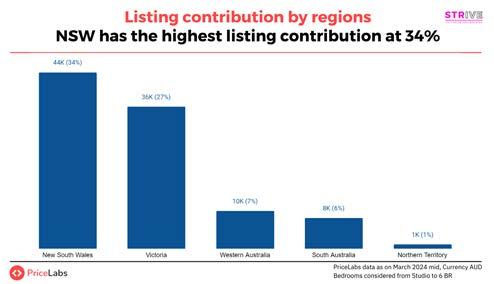
“ A great analyst constantly monitors, measures, and critically analyses a wide variety of data sources and trends to avoid ever having to claim “In hindsight...”
Melissa Kalan
by Melissa Kalan, Australian Revenue Management Association
Regardless of the ever-changing landscape of the hospitality industry, one thing remains constant –the value perceived by guests during their stay. As accommodation operators, it is crucial to understand that value should rise in lockstep with pricing, as after all, price is a reflection of value.
However, value perception for price paid extends beyond the initial offer to entice and convert the booking, it also extends to the on-property experience. Your guests need to easily decipher the value they receive for their hard-earned money and failure to deliver on this front can lead to negative guest reviews. Negative reviews such as “lacks value for money” which I have seen more of in recent times can lead to a dent in your reputation, which can impact your pricing power.
Do not position your property as the decoy for customers to book elsewhere. If you are receiving reviews that consistently flag the property lacks value then pay attention, or your market share data may begin to tell an unfavourable story. Remember, you may not need to adjust your pricing but may need to review the entire on-site experience for your customers to improve their perception of value for the price paid.
Prioritising value for money is paramount for all business operators and is especially important during tough economic times when purse strings begin to tighten.
The first step in offering value for money starts with the booking process. Modern travellers are discerning and savvy, seeking out the best deals and experiences. As accommodation operators, you must ensure that your online presence and direct booking websites clearly communicate the value guests can expect during their stay. This includes providing detailed
information about the amenities, services, and unique offerings that set your property apart from others. Adopting technology that allows the customer to curate their stay with personalised amenities and services also heightens their value perception and overall stay experience. It will, however, fall apart quickly if the chosen amenities and services can’t be delivered on efficiently once the guest arrives.
The booking process should be straightforward and transparent. Guests should be able to easily compare room types, pricing, and inclusions. Avoid hidden fees and marketing hooks that may leave the customer feeling deceived and ensure upsells are offered and targeted. When guests can easily decipher what they are paying for, they are more likely to perceive the value in their booking.
As mentioned, value for money should not end with the booking confirmation. It extends to the entire onproperty experience. One of the most common pitfalls that lead to negative guest reviews is a disconnect between the promise made during booking and the reality on-site.
Accommodation operators must take a critical look at the service blueprint of the on-property experience. This blueprint includes every touchpoint that guests encounter during their stay, from check-in to check-out. Are guests promptly attended to when they seek assistance? Is the room clean, functional, and well-maintained? Are attributes selected at time of booking delivered on? These are essential questions that should be addressed and continuously improved upon.
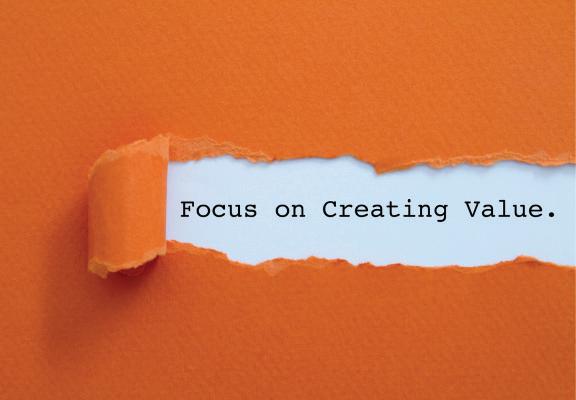
“ Nothing is more expensive than a missed opportunity to sell value ”
Investing in Guest Experience:
Investing in the guest experience is investing in your property’s success. This can involve staff training programs to enhance customer service, and mindfulness in all aspects of guest interactions. Small gestures, such as a personalised welcome notes or interesting and unique amenities, can go a long way in adding value to the guest’s experience and their post stay chatter to friends, family and colleagues.
Balancing Luxury and Value:
Guests paying a premium rate have elevated expectations, and it is essential to exceed those
expectations through impeccable service and attention to detail. For luxury properties, the challenge lies in finding the right balance between luxury offerings and value for money. Luxury should never be an excuse to overlook the value guests still expect.
Listening to Guest Feedback:
Guest reviews are valuable insights into the guest experience. Addressing negative reviews and addressing recurring issues will demonstrate your commitment to delivering value for money. When guests perceive that they are receiving value that matches or exceeds the price they paid, they are more likely to become repeat customers and share their positive experiences with others.
www.revenuemanagementassociation.com
by Melissa Kalan, Australian Revenue Management Association

n industries with perishable assets, where time is money, and empty seats, vacant hotel rooms, or unsold inventory translate directly into lost revenue, effective revenue and yield management is not just a strategy; it’s a critical commercial pillar. Whether you’re in the airline, hospitality, tourism, or any other industry dealing with time-sensitive, limited-capacity assets, understanding the importance of revenue and yield management can be the key to maximising profitability and long-term sustainability.
Why is the application of effective revenue and yield management so critical?
Similarly to hotels an airline has a fixed number of seats on a flight. Once the plane takes off, any unsold seat is revenue lost forever. This is where revenue and yield management comes into play. By analysing historical data, market demand, and consumer behaviour, businesses can strategically price and manage their assets to maximise revenue and profit. This means adjusting prices based on factors like booking lead times, peak travel seasons, and even weather events.
The result? Increased revenue from the same number of assets.
For hotels, cruise lines, and event venues, perishable assets are rooms, cabins, and seats. Effective revenue and yield management ensures that inventory is optimally allocated. It involves making decisions about which inventory to sell at what price, when
and where. By analysing data and market trends, businesses can ensure that high-demand assets are priced accordingly, while low-demand assets are positioned well to attract customers.
The result? This dynamic pricing strategy not only grows top-line revenue but also enhances customer satisfaction by offering competitive rates packed with value!
In industries with perishable assets, demand can fluctuate widely. Revenue and yield management enables businesses to match supply with demand in real-time. For example, hotels can use pricing strategies to encourage bookings during off-peak periods or for longer stays. Airlines employ similar tactics by adjusting fares based on the time of day, day of the week, route direction and season.
The result? This balance ensures that assets are consistently generating optimal revenue, even during slower periods. Revenue and yield management also involves improving the overall customer experience. By optimising pricing and inventory, businesses can strategically overbook confidently where needed and avoid spoilage such as under-booking, This reduces the risk of disappointed customers and revenue leakage. Further, when customers find value in your products and services, and are provided the ability to customise their stay by selecting price for desired attribute based on their needs, wants, and purpose for travel...
The result? They are more likely to return, fostering raised perceived value, customer loyalty, and positive word-of-mouth!
Revenue and yield management relies heavily on data analysis. Businesses gather vast amounts of data on customer behaviour, market trends, and historical performance. This data is then used to make informed pricing and inventory decisions. With the adoption of advanced analytics, artificial intelligence and machine learning, businesses can refine their strategies to a deeper level.
The result? Deeper and more frequent insights identify revenue and profit opportunities that might otherwise have gone un-seen. In competitive markets, effective revenue and yield management can be a significant differentiator. Businesses that can consistently offer competitive prices, manage inventory effectively, and maximise both revenue and profit are better positioned to thrive in their respective industries.
The final result?
Revenue and yield management is not merely a strategy; it’s a critical commercial pillar for industries


with perishable assets. By leveraging data-driven decision-making, optimising pricing and inventory, and focusing on the customer experience, businesses can discover their full revenue earning potential and profit margins whilst maintaining a competitive edge in their markets. In an environment where every seat, room, or ticket counts, revenue and yield management is the key to your success.
www.revenuemanagementassociation.com
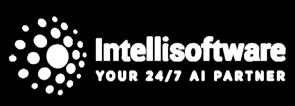

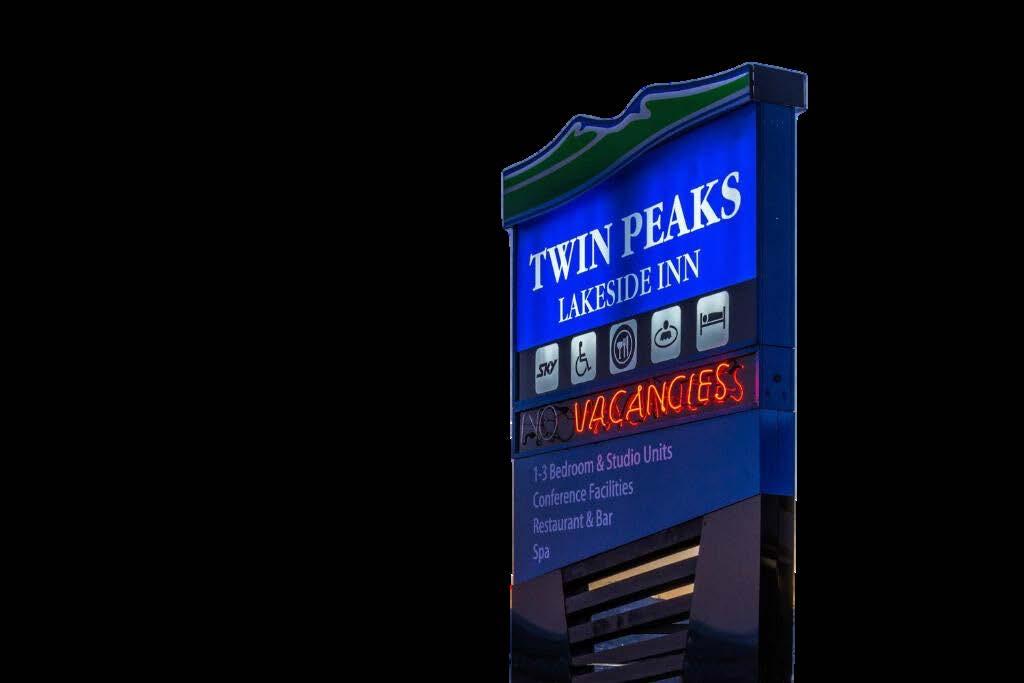
by Melissa Kalan, Australian Revenue Management Association
Accommodation properties operate in a highly competitive industry, and it is essential for these businesses to maximise their revenue and profitability to thrive and improve asset value. To achieve this goal, they need to adopt effective strategies that can help them increase their top-line revenue while managing costs. In this article, we will discuss some commercial strategies that properties should focus on to maximise their revenue and profitability.
STRATEGY: The first and most important strategy for maximising revenue is the pricing strategy. Accommodation properties should regularly evaluate their pricing structure and adjust it based on demand and seasonality. Implementing dynamic pricing strategies can help properties adjust their prices based on demand and occupancy rates. A welldesigned pricing and distribution strategy also helps to increase revenue per available room (RevPAR), occupancy rates, ADR, and profit.
AND SALES STRATEGY: A robust marketing and sales strategy can help properties increase their visibility and attract more guests. Properties can use a combination of digital marketing techniques, including SEO, social media marketing, and email marketing, to reach their target audience. They can also work with travel agents and a range of booking channels to increase their online presence and reach a wider audience. Costs of acquisition across all distribution channels and return on investment of all marketing campaigns must be measured and monitored.
EXPERIENCE: Providing an exceptional customer experience across all touch points is crucial for attracting and retaining guests. Accommodation properties can invest in customer service training for their staff, focus on personalised guest experiences and offers, and analyse customer feedback and reviews to improve their guests’ experience. Customer reviews are powerful and influence property value perception which impacts your pricing. So often I see guest reviews flag that your property lacks value for money. Even if you think it does not, other customers searching are swayed heavily by this review, so take notice.
MANAGEMENT: Revenue management strategies involve optimising revenue streams by managing inventory availability, room rates and occupancy levels in real-time for all market segments across a range of distribution channels. Properties can implement techniques such as upselling and attributebased selling to maximise customer spend. Allowing customers to curate their stay based on their needs and wants also enhances their experience and perceived value. Automated forecasting solutions that predict demand, draw on a broad range of data sources, and have the capability to re-forecast multiple times a day to adjust pricing are beneficial for your best chance of success. Forecasting with accuracy is a major driver of business growth, underpins the success of commercial strategies and the profitability of the entire property. Do not contribute to the shortfall in industry talent by overlooking the value skilled forecasters can bring to your business, and especially those that are excellent communicators and leaders too.

“Data presented without the correct context and layers is an enemy of the discovery of truth” Melissa Kalan
MANAGEMENT: While increasing revenue is important, managing costs is equally essential. Accommodation operators should regularly evaluate their costs and identify areas where they can reduce expenses. This can include implementing energyefficient systems, reducing food and beverage costs balanced with a focus on the contribution margin of menu items, outsourcing non-core activities and improving forecasting accuracy.
Diversifying revenue streams can also help increase revenue and profitability. Accommodation properties can generate additional revenue by offering additional services they may not offer onsite by tapping into an eco-system of local providers. Adding services can also help to differentiate a property from its competitors and increase its value perception.
Emerging trends are:
1. SUSTAINABILITY: This is a growing trend in the hospitality industry. Guests are becoming increasingly conscious of their environmental impact and are seeking sustainable options. Properties can reduce their carbon footprint by implementing sustainable practices like energyefficient systems, recycling programs, and sourcing
local products. Those that embrace sustainability can differentiate themselves from competitors and appeal to eco-conscious guests. For corporate properties, the impact of sustainability targets on this segment, coupled with a forced and recent conditioning behaviour of servicing clients remotely, along with the cost saving benefits of lower travel spend is something to monitor closely.
2. TECHNOLOGY: Properties can use technology to improve the guest experience, streamline operations and increase revenue. Mobile check-in and keyless entry can enhance the guest experience, while data analytics and artificial intelligence can help operators better understand their guests and predict their needs. Skilled leaders capable of interpreting insights from numerous sources of data and with the experience and critical thinking skills to know when and how to react and when not to, vastly improves your commercial capabilities.
www.revenuemanagementassociation.com

Get ready to impress your friends and family with this homemade dessert bursting with warm, melted chocolate.
Baking spray, for spraying ramekins
115g butter
60g bittersweet chocolate
60g semisweet chocolate
1¼ cups powdered sugar
2 whole eggs
3 egg yolks
1 teaspoon vanilla
½ cup all-purpose flour
Vanilla ice cream, for serving
1 Preheat the oven to 220°C. Spray four oven proof ramekins with baking spray and place on a baking sheet.
2 Microwave the butter, bittersweet chocolate, and semisweet chocolate in a large bowl on high until the butter is melted, about 1 minute. Whisk until the chocolate is also melted. Stir in the sugar until well blended. Whisk in the eggs and egg yolks, then add the vanilla. Stir in the flour. Divide the mixture among the ramekins.
3 Bake until the sides are firm, and the centres are soft, about 13 minutes. Let stand 1 minute. Invert on individual plates while warm and serve with vanilla ice cream.







